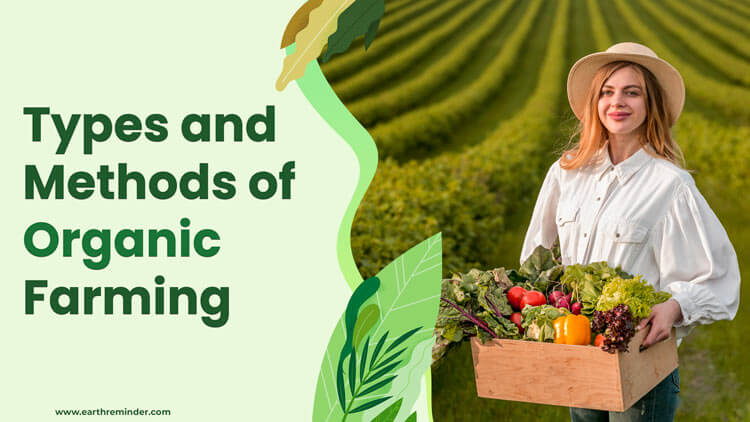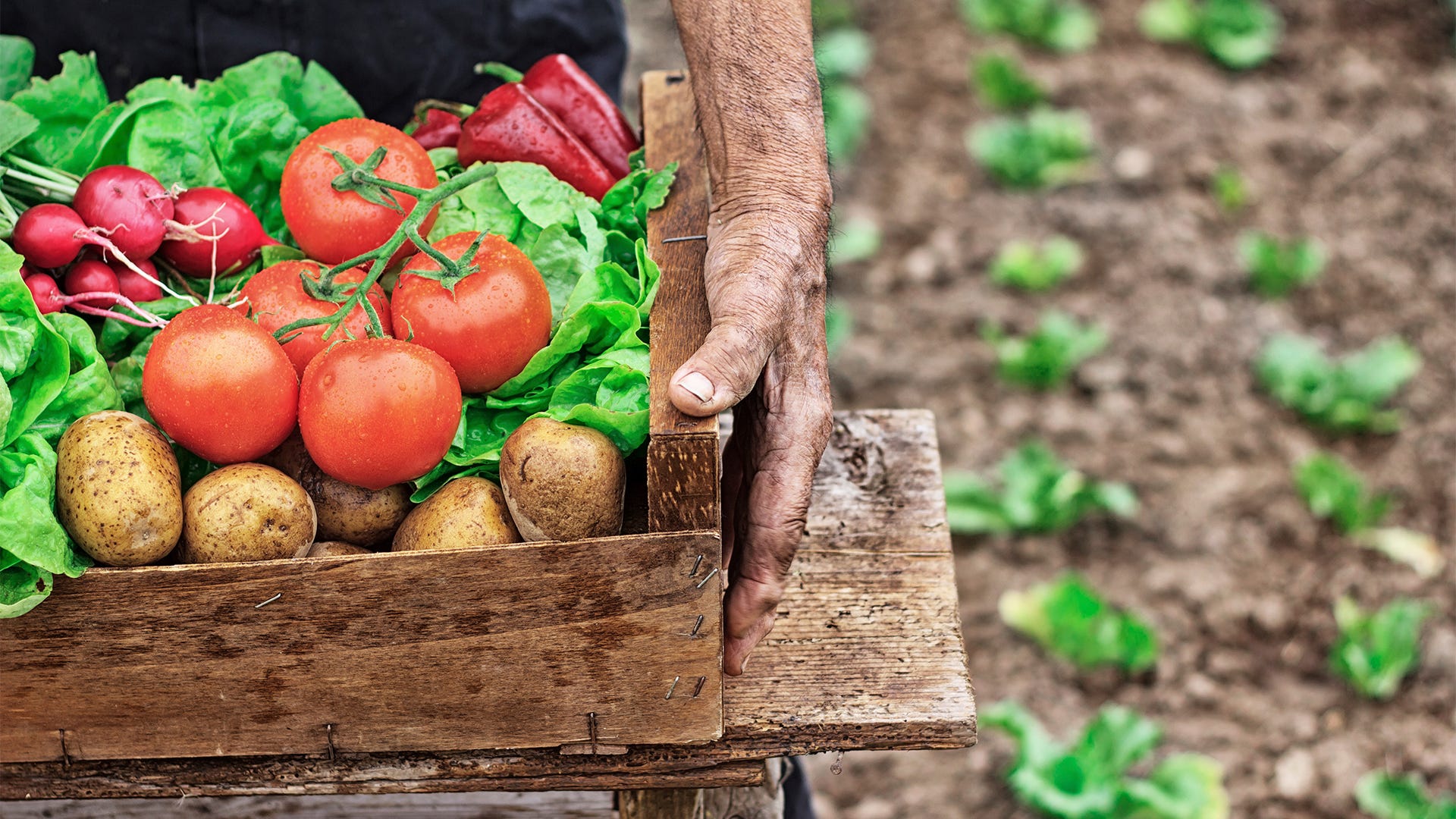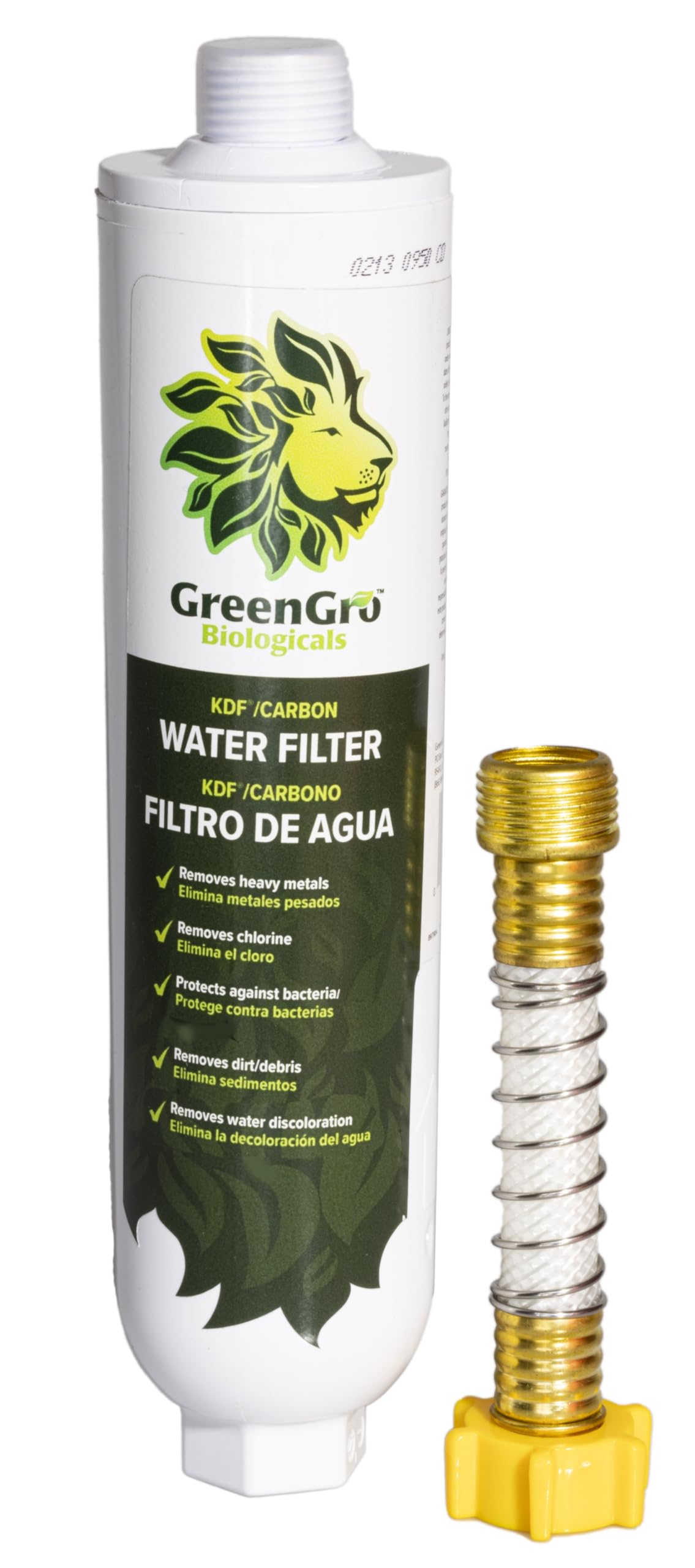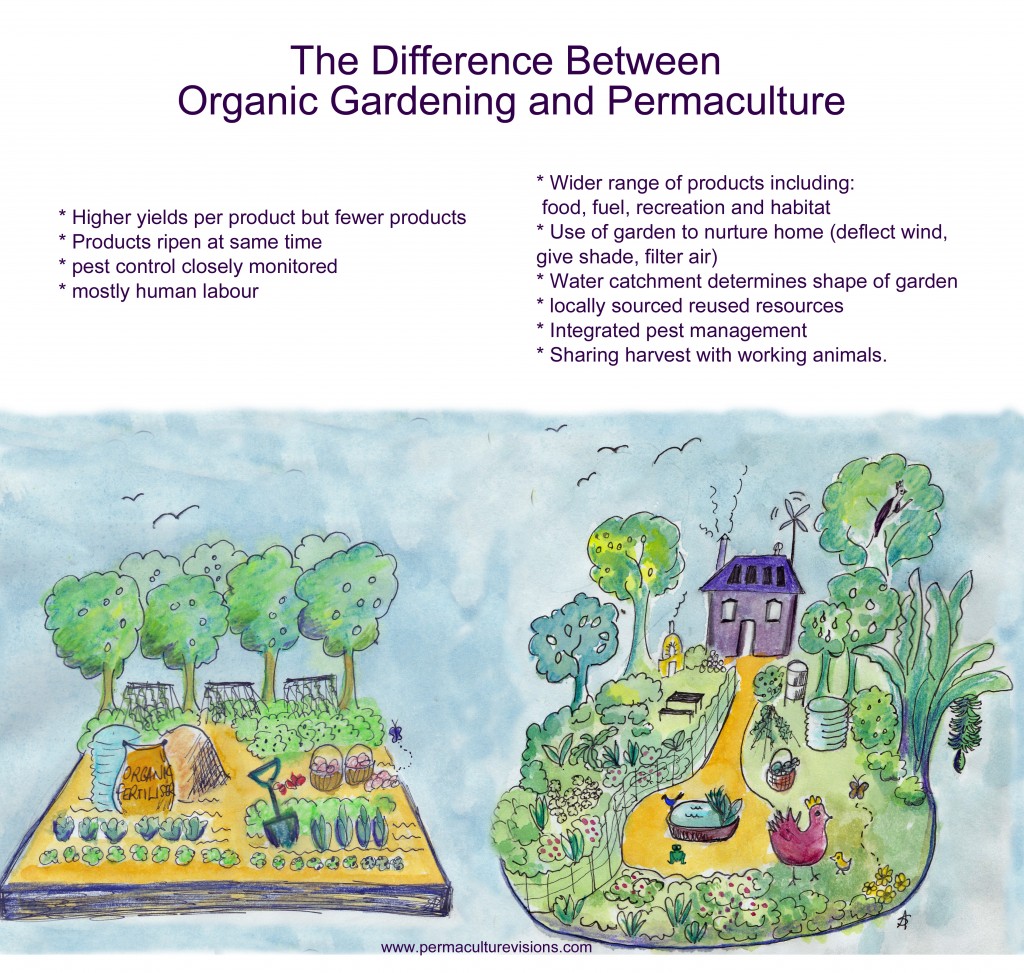Understanding Conventional Gardening: A Detailed Contrast to Organic Practices. Explore The key differences between conventional & organic gardening. Discover simple tips & insights To help you choose The best methods for your garden!
What is Understanding Conventional Gardening: A Detailed Contrast To Organic Practices & how does it work?
Conventional gardening focuses on use of synthetic products. Chemicals serve as fertilizers, pesticides, & herbicides. This method aims for high yields & quick results. Farmers often prioritize efficiency over ecological balance. Techniques vary among regions, depending on climate & soil.

Brief history of Understanding Conventional Gardening: A Detailed Contrast To Organic Practices
This approach gained momentum during 20th century. Innovations like mechanization changed farming landscapes. Chemical agriculture emerged post-World War II. During this period, food production intensified. Public demand for affordable produce fueled these changes.
How To implement Understanding Conventional Gardening: A Detailed Contrast To Organic Practices effectively
Begin by selecting suitable crops for local climate. Use soil tests To determine nutrient needs. Apply chemical fertilizers accordingly, following recommended guidelines. Monitor crops regularly for pests. Implement pest control measures as necessary, ensuring minimal damage.
Key benefits of using Understanding Conventional Gardening: A Detailed Contrast To Organic Practices
One major advantage includes higher yields. Conventional methods often provide quicker harvests. Farmers can maximize land utilization. This method works well in large-scale operations. Additionally, costs often remain lower than organic alternatives.
Challenges with Understanding Conventional Gardening: A Detailed Contrast To Organic Practices & potential solutions
Negative environmental impacts present a significant challenge. Runoff from chemicals can contaminate water sources. Soil degradation occurs from repeated use of synthetic inputs. Integrated pest management offers a potential solution. Crop rotation helps maintain soil health over time.
Future of Understanding Conventional Gardening: A Detailed Contrast To Organic Practices
Trends indicate a shift toward sustainable practices. Consumers increasingly favor eco-friendly options. Research continues on reducing chemical dependencies. Innovations in biotechnology offer promising solutions. Regulations may tighten around chemical usage in agriculture.

Understanding Conventional Gardening
Conventional gardening refers To methods commonly utilized in many households & commercial farms today. These techniques often rely on synthetic chemicals, pesticides, & fertilizers. This gardening approach emphasizes higher yields & quicker growth cycles. A detailed contrast can be made against organic practices, wherein natural processes reign supreme. Many gardeners debate effectiveness & environmental impact of these contrasting methods.
Conventional gardening heavily relies on agricultural science. For example, fertilizers provide essential nutrients efficiently. Gardeners can apply these nutrients directly To plants, ensuring rapid growth. For those interested in exploring comparisons between organic & conventional practices, a good resource is this link. Understanding differences contributes considerably To informed decisions.
Key Principles of Conventional Gardening
Conventional gardening entails several foundational principles. First, synthetic inputs dominate practices. These inputs significantly enhance plant health & growth. Chemical fertilizers guarantee an ample supply of essential nutrients. This approach contrasts sharply with organic practices.
Pest control methods also vary between gardens. Conventional gardening utilizes chemical pesticides systematically. These substances target pests effectively, often achieving rapid results. Conversely, organic practices employ natural pest deterrents, focusing on balance within ecosystems.
Water management remains a crucial element. Loss of moisture can halt growth, affecting produce quality. Conventional methods often employ irrigation techniques, facilitating efficient water distribution. These methodologies contribute To optimized conditions, enhancing plant vitality.
Environmental Impact of Conventional Gardening
Conventional gardening raises significant concerns regarding environmental impact. The application of synthetic fertilizers can lead To soil degradation over time. Chemical runoffs may contaminate local waterways, harming aquatic ecosystems. Recognizing these consequences proves essential for future practices.
Moreover, pesticide use poses risks To beneficial insects. Pollinators, such as bees, face exposure To harmful chemicals that decrease populations. Recent studies, including a compelling one that can be reviewed here, emphasize urgency in addressing these impacts.
Traditional methods diverge from ecological harmony. Reduction of biodiversity can ensue when singular plant species dominate gardens. Encouraging variety fulfills crucial roles in promoting overall ecosystem health within farming settings.
Understanding Organic Practices
Organic practices encompass techniques that prioritize ecological health. Gardeners aim for sustainability through integration of natural processes. This approach fosters a balanced ecosystem. Healthy soil promotes robust plant growth. Most importantly, organic gardening avoids synthetic chemicals, thereby sustaining environmental diversity.
Healthy soil acts as a fundamental pillar within organic gardens. Composts & natural fertilizers enrich soil without harming life forms. Cultivating microbes & beneficial organisms bolsters plant resilience. These aspects highlight another contrast with conventional gardening approaches.
Pest management differs markedly as well. Organic gardeners prefer integrated pest management strategies. Utilizing natural pest deterrents reduces harm To beneficial insects. Strategies include companion planting, hand-picking pests, & attracting predatory insects. These practices promote ecological balance.
Benefits of Organic Gardening
Organic gardening offers numerous benefits. First, produce often requires fewer chemicals. This reality allows gardeners To enjoy healthier fruits & vegetables. Moreover, soil health improves over time through organic practices. The continuous addition of organic matter enhances moisture retention.
Another advantage involves maintaining local biodiversity. Organic practices create habitats, promoting beneficial organisms. Pollinators thrive in diversified landscapes, increasing yield potential for flowers & crops. Biodiversity supports a healthier ecosystem overall.
Organic gardening also addresses consumer concerns. Interest in sustainably sourced food continues growing. Individuals increasingly demand transparently grown products. Registering as an organic grower appeals To many consumers seeking certification & safety.
Cost Considerations in Gardening
When comparing conventional & organic gardening, costs frequently arise as a topic of discussion. Conventional practices may require higher initial investment. Chemical inputs often cost significantly less than organic alternatives. However, these expenses must consider long-term environmental impact. Traditional methods tend To exert pressure on ecosystems.
Organic gardening may incur higher costs for materials, such as compost & natural pest deterrents. Nonetheless, The long-term benefits often justify expenses. Enhanced soil health reduces long-term investments in fertilizers & pesticides.
Understanding profitability remains important. Conventional gardening may yield quick returns, but organic methods foster sustainable practices. Weighing initial investments versus long-term gains becomes crucial for thoughtful gardeners.
Personal Experience in Gardening
My journey through gardening began years ago. Experimentation with both practices taught me valuable lessons. Initially, I relied on conventional techniques To grow vegetables. However, upon seeing negative effects on soil health, I transitioned toward organic methods. Now, I appreciate sustainability, resilience, & diversity within gardens.
Sustainable Practices for Future Gardening
Sustainable gardening practices emerge in discussions about future growing methods. Integrated pest management offers effective solutions. Gardeners can adopt multiple strategies, improving ecological health over time. Rotating crops, utilizing companion planting, & enhancing soil quality contribute significantly.
Water conservation remains essential for sustainable gardening. Employing rainwater collection systems supports eco-friendly practices. Drip irrigation & mulching help retain moisture, ensuring plants thrive under various conditions. These practices prioritize responsible water management.
Community engagement further enriches sustainable practices. Collaborating with local gardeners enhances knowledge sharing. Joining community gardens fosters connections among horticulturalists, emphasizing cooperative learning within The gardening community. This collaborative approach advocates for sustainable practices.
Challenges Facing Gardeners Today
Numerous challenges confront gardeners across various practices. Pest resistance remains a significant concern. Pests can develop adaptability against chemical treatments. This phenomenon necessitates continuous advancements in pest management strategies. Gardeners must always seek innovative solutions & methods.
Climate change also affects gardening practices. Extreme weather conditions can complicate growth cycles. Heatwaves, droughts, & flooding impose challenges upon gardeners. Awareness & adaptation strategies become critical components of resilient gardening.
Education around gardening continues evolving. Resources assist gardeners in understanding both organic & conventional methods. Workshops, local gardening clubs, & online communities encourage knowledge sharing. This collective learning fosters sustainable growth practices, addressing challenges collaboratively.
Future Directions in Gardening
Future gardening practices demand innovative approaches. Technological advancements can transform conventional & organic gardening methods alike. Precision agriculture highlights significant possibilities in monitoring conditions. Data-driven decisions allow growers To optimize resources efficiently.
Urban gardening represents an exciting frontier. As urbanization increases, space becomes limited. Vertical gardens, rooftop farms, & hydroponics offer viable solutions. These methods allow To maximize production in constrained areas, while promoting sustainability.
Moreover, regenerative agriculture emerges as a key focus. This holistic approach emphasizes restoration of ecosystems while producing food. Integration of organic practices with regenerative principles can produce remarkable results. Fostering healthy soil, diverse ecosystems, & sustainable growth are essential for a thriving future.
Key Differences Between Conventional & Organic Gardening
- Use of synthetic inputs vs. natural inputs 🌱
- Pest control methods: chemicals vs. natural deterrents 🐞
- Soil enhancement: synthetic fertilizers vs. composting 🥕
- Environmental impact: ecosystem disruption vs. harmony 🌍
- Consumer demand for transparency: lower rates in conventional 🛒
- Threats from climate change: adaptable vs. resistant 🌦️
- Community engagement: isolation vs. collaboration 🤝
Concluding Thoughts
Understanding conventional gardening offers valuable insights. Navigating contrasts against organic practices enhances knowledge. Each gardener should consider individual goals & philosophies. Both paths present unique challenges, rewards, & responsibilities.
What is Organic Farming? | Agriculture | Biology | FuseSchool
Understanding Conventional Gardening: A Detailed Contrast to Organic Practices What is Organic Farming? | Agriculture | Biology | FuseSchool Understanding Conventional Gardening: A Detailed Contrast to Organic Practices
Understanding Conventional Gardening
Conventional gardening refers primarily To traditional farming or gardening methods. These methods incorporate synthetic chemicals, fertilizers, & pesticides. Many gardeners choose this route for simpler & faster crop production. This approach focuses on maximizing yields quickly. However, it comes with potential downsides that need discussion.
Utilizing chemical inputs helps control pests effectively. Many plants benefit from synthetic fertilizers. These fertilizers often contain high nitrogen, phosphorus, & potassium levels. Conventional gardeners also rely on monoculture practices. Growing a single crop dominates specific areas. This arrangement can result in increased efficiency & simplicity.
In my experience, working with conventional gardening methods simplified tasks. I discovered specific shortcuts, such as using chemical fertilizers To enhance growth rates. Plants flourished quickly, & I could harvest sooner than expected. However, I started questioning long-term effects associated with synthetic chemicals.
The Role of Pesticides
Pesticides perform a crucial role within conventional gardening. These products combat various pests that threaten crops. While effective, some chemicals pose risks To beneficial insects & pollinators. Therefore, managing pest populations sustainably requires careful consideration.
Alternatives exist in organic gardening, promoting a more balanced ecosystem. Understanding these alternatives can help gardeners minimize risks associated with conventional practices. Interested gardeners can explore more by checking out helpful resources, such as One Yard Revolution.
Gardening communities often discuss various pesticide types. Some pesticide solutions may harm humans & animals, leading gardeners toward caution. Researching pesticide impacts prepares gardeners for informed decisions. Using non-chemical pest management promotes healthier ecosystems.
Soil Health & Fertility
Soil health serves as a critical factor within gardening practices. Conventional gardening often uses chemical fertilizers, which can lead To soil degradation over time. These chemicals may disrupt natural microbial communities essential for nutrient cycling. As a result, soil becomes less fertile long term.
Organic practices, contrastingly, emphasize building healthy soils through natural amendments. Compost provides essential nutrients while enhancing soil structure. Additionally, cover crops improve soil fertility & support beneficial organisms. Managing soil health aids in sustaining vibrant ecosystems in gardens.
Gardeners interested in improving soil health can research biological techniques. Applications of compost, green manures, & mulching offer simple solutions. For more insights, you can read about these methods at Difference Between Organic Gardening & Permaculture.
Water Management Practices
Water management consistently influences garden health & production. Conventional practices often emphasize irrigation systems, which may waste significant water resources. Moreover, extensive watering can leach valuable nutrients away from root zones. This practice may lead To increased dependency on fertilizers.
In contrast, organic gardening promotes water conservation techniques. Rainwater harvesting & drip irrigation minimize water waste. These strategies allow more efficient watering while promoting better soil health. Creating a balance between water usage & crop needs remains essential.
Many gardeners benefit from adopting sustainable water practices. Keeping track of local weather patterns ensures optimized watering routines. Consistently monitoring moisture levels within soil allows gardeners access To informed watering decisions.
Understanding Organic Gardening
Organic gardening represents a holistic approach. This method prioritizes environmental health & sustainability. A strong connection with natural ecosystems characterizes this practice. Gardeners focus on utilizing natural fertilizers & pest management techniques instead of chemicals.
One hallmark of organic gardening involves crop rotation. Rotating different crops helps maintain soil health & reduces pest build-up. This method encourages beneficial biological activity within soil. By optimizing crop diversity, organic gardening nurtures ecosystems efficiently.
Fundamentally, organic gardens nurture not just plants but also soil. Using organic compost, cover crops, & mulching techniques sustains vibrant habitats. Thus, gardening goes beyond mere production; it fosters deeper environmental connections.
Comparative Practices
Comparing conventional & organic gardening practices could reveal significant differences. Conventional methods may maximize short-term yields. Organic gardening focuses on long-term ecological health & soil vitality instead. Understanding these contrasts helps gardeners choose methods aligning with individual values.
Below, observe a comparative table summarizing key differences.
| Aspect | Conventional Gardening 🌽 | Organic Gardening 🍅 |
|---|---|---|
| Pesticide Use | Heavy reliance on synthetic pesticides | Natural pest management strategies |
| Fertilizers | Synthetic fertilizers for fast growth | Natural amendments like compost |
| Soil Health | Poor long-term soil vitality | Focus on building healthy soils |
| Crop Diversity | Monoculture practices | Emphasis on crop rotation |
| Water Management | Excessive irrigation methods | Water conservation techniques |
The Environmental Impact
Conventional gardening practices can lead To harmful environmental consequences. Heavy chemical use contributes To pollution. Water sources can become contaminated due To runoff. Biodiversity suffers as ecosystems become unbalanced.
By contrast, organic gardening uplifts environmental health. This method encourages conservation of natural resources. Organic practices enhance soil fertility over time. Such strategies support communities of beneficial organisms vital for ecosystem balance.
Gardening sustainably not only protects landscapes but also engages communities. Individuals united by common goals of environmental responsibility foster deeper connections. Participating in local gardening projects helps spread awareness & enhance understanding.
Cost Implications
Cost represents another significant difference between these practices. Conventional gardening might offer short-term savings due To cheaper inputs. However, long-term environmental damage can lead To greater expenses. Addressing soil health, pest management, & resource use proves more costly over time.
Investing in organic practices may present higher initial costs. Nevertheless, sustainable practices yield valuable benefits upfront. Building soil health, enhancing biodiversity, & ensuring water conservation offers lasting returns on investment.
Choosing between these methods often reflects personal values. Gardeners who prioritize sustainability may opt for organic methods. Alternately, those seeking immediate gratification might lean toward conventional approaches.
Decision-Making in Gardening
Deciding between these gardening methods involves personal values. Considerations revolve around environmental impact, budget, & desired outcomes. Some gardeners thrive on efficiency, opting for conventional methods. Others prioritize sustainability, embracing organic practices.
Identifying long-term goals determines suitable gardening approach. Establish communities focused on shared values can provide support. Participating in local gardening workshops enhances knowledge & decision-making capabilities for both new & experienced gardeners.
Always listen To personal motivations & see beyond immediate gains. Sustainability plays a significant role in enabling future generations. Understanding both sides allows for informed decision-making, ensuring a lasting impact.
Exploring Further Resources
Accessing additional resources proves beneficial for gardeners. Connecting with local gardening communities promotes shared knowledge. Online forums & workshops create platforms for exchanging techniques & experiences.
Many informative articles exist on gardening best practices. Knowledge about soil health, sustainable pest control, & appropriate watering encourages better decision-making. Well-researched content helps gardeners navigate complex topics efficiently.
Gardening websites, like Garden AFA, offer valuable insights. Learning from others’ experiences can enhance practices, regardless of gardening approach chosen. Community involvement nurtures growth for both plants & individuals.

What is The opposite of organic gardening?
The opposite of organic gardening is conventional gardening, which typically involves The use of synthetic fertilizers, pesticides, & herbicides To enhance plant growth & control pests.
What are The main characteristics of conventional gardening?
Conventional gardening relies on chemical inputs To optimize growth, often prioritizing high yields over ecological balance. It may also involve monoculture practices, where a single species is planted extensively, which can deplete soil nutrients.
How does conventional gardening impact The environment?
Conventional gardening can lead To soil degradation, loss of biodiversity, & pollution of water sources due To runoff from chemical fertilizers & pesticides, negatively affecting local ecosystems.
Are there health implications associated with conventional gardening?
Yes, The use of synthetic chemicals in conventional gardening can pose health risks To humans, including exposure To harmful substances through consumption of contaminated produce & inhalation of pesticide sprays.
What are common practices in conventional gardening?
Common practices in conventional gardening include The use of genetically modified organisms (GMOs), chemical soil amendments, & aggressive pest control methods that may not take ecological considerations into account.
Is conventional gardening more cost-effective than organic gardening?
Conventional gardening may appear To be more cost-effective in The short term due To lower labor costs & higher initial yields, but long-term environmental degradation can lead To increased ecological restoration costs.
What types of crops are typically grown using conventional methods?
Conventionally grown crops often include high-demand commodity crops such as corn, soybeans, & wheat, which are cultivated for their high yield potential & marketability.
Can conventional gardening be sustainable?
While conventional gardening focuses primarily on yield, practices such as crop rotation & integrated pest management can be integrated To make it more sustainable, although it usually does not match The sustainability level of organic gardening.
What is The role of technology in conventional gardening?
Technology plays a significant role in conventional gardening, with advancements in agricultural practices, genetically engineered seeds, & precision agriculture techniques aimed at increasing efficiency & profit margins.
Conclusion
understanding The differences between conventional & organic gardening is crucial for any gardener. Conventional gardening often relies on chemical fertilizers & pesticides, which can make it easier & faster To grow plants. On The other hand, organic gardening focuses on natural methods & promoting healthy soil, although it may require more time & effort. Both methods have their unique benefits & challenges. Ultimately,

The choice between them comes down To personal preferences & gardening goals. By knowing what each approach entails, you can make a more informed decision that aligns with your values & lifestyle. Happy gardening!
